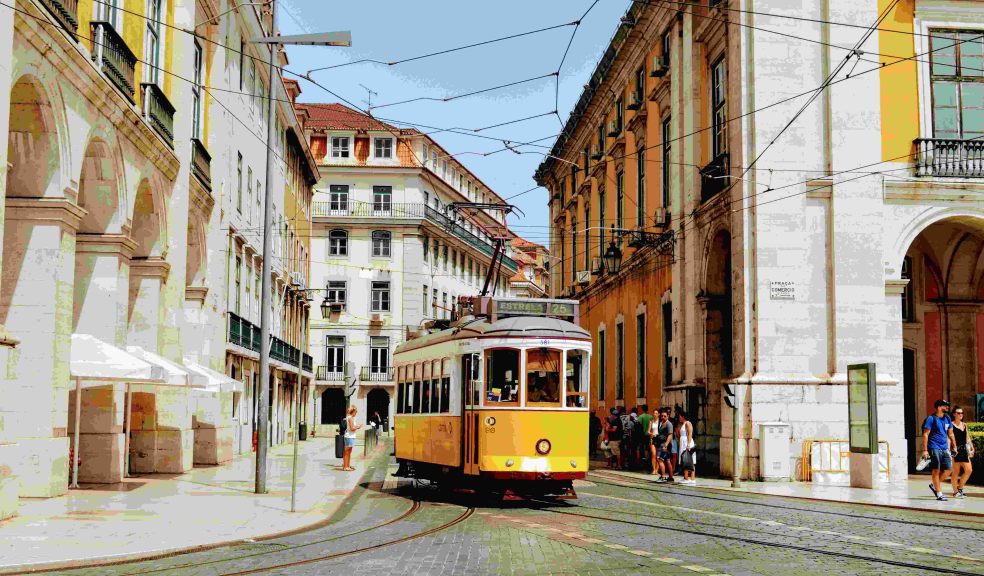
Are Portugal's visa options the perfect post-Brexit plan?
In a period of economic turmoil, rising interest rates, and 40-year high inflation rates, it's no surprise that more and more Brits are now looking abroad for fresh opportunities.
That said, options are much scarcer than ever before for UK citizens. Of course, the main reason for this is Brexit, as Brits now require a visa to live in any of the 26 EU member states, as well as EEA countries. In addition, traditional UK emigration options such as Canada, Australia, New Zealand, and the US have also not gotten any easier.
While a handful of EU countries are offering some attractive ways for Brits to move to Europe again, Portugal offers several reasonable visa options where the requirements are fairly attainable, and they even come with added tax benefits.
Thus, it's fair to say that Portugal is becoming the perfect post-Brexit plan for Brits now wanting to come to the EU post-Brexit. In fact, it has become one of the most popular places for non-EU/EEA citizens to gain entry into the EU's Schengen zone.
Why Portugal
To be honest, does it really need an introduction? Along with Spain and France, Portugal has always been one of the most popular EU options for both British holidaymakers and ex-pats.
With an average of 300+ days of sunshine per year, a lower cost of living, easy paced life, and a sizeable ex-pat community already in existence, Portugal is a pretty uncomplicated place to call home.
It is a safe country, with fairly decent public health care, has numerous international schools to choose from, and ranks #6 in the Global Peace Index (the UK ranks at #34). It also only takes 5 years of residency to become a citizen, and they allow dual citizenship, so no need to give up your Britishness, of course, unless you want to.
There are three main visa options that are attractive for Brits looking to emigrate to Portugal:
The Portuguese Golden Visa – although there are some talks of ending it at some point, it is still very much alive and kicking for the time being.
D7 Visa – a.k.a passive income visa, or retirement visa
Digital Nomad Visa – a relatively recent addition
The Portuguese Golden Visa
This option has been around since 2012, however, has grown popular over recent years. It is a type of investment visa, however, much more attainable than it sounds, as it is not just for high-net-worth individuals. The investment can be as simple as purchasing a property that you intend to live in, and you can be looking at an investment as low as €280,000, in order to qualify (depending on geographical restrictions and other rules).
There is a lot that could be said here about the Portuguese Golden Visa, however, you can find a very clear Guide to the Portuguese Golden Visa at Nomad Gate. Here you will find all the different investment options, the rules regarding minimum investment amounts, and all the geographical considerations for purchasing real estate that qualifies.
D7 - Passive Income Visa
If purchasing a property for those amounts doesn't work for you, then there is also the passive income visa, known as the D7 visa. This is particularly popular among American retirees and self-employed freelancers.
To qualify, all you need is passive income amounting to the Portuguese minimum wage, which is €9,940 annually. This can be, for example, dividends from a business you own, or money from a property you rent out. Thus, it's quite an attractive possibility, especially for those looking to retire, or those who have their own remote business and can continue to earn money from Portugal.
Portugal's Digital Nomad Visa
Announced in October 2022, Portugal is now offering a Digital Nomad Visa, similar to many other countries worldwide. This is very similar to the D7 visa, but it requires four times the current minimum income in Portugal. So, it is more suited to small business owners, freelancers, and digital nomads, looking to move on a more temporary basis.
Nevertheless, it is different from the many other digital nomad visas you will find in the world since your stay in Portugal contributes towards gaining permanent residency.
Tax Benefits
To top it all off, Portugal offers attractive taxation benefits for those looking to move to the country. Although it is generally known for high tax rates, its taxation scheme known as NHR (non-habitual residency), gives you special taxation benefits for up to 10 years. To read more about this topic, you can see Nomad Gate's guide to NHR.
Final Thoughts
The visa options listed are primarily geared toward small business owners, freelancers, digital nomads, and investors. That doesn't mean, however, that they are not valid options for other people – it's especially simple for most retirees.
As mentioned, the requirements are as loose as buying a property or having enough passive income. So, while Brexit may have closed many paths to EU residency, Portugal still remains a great choice for Brits seeking a different lifestyle in Europe.

















